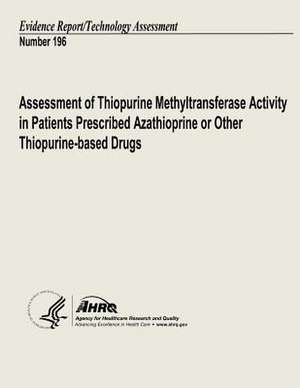Assessment of Thiopurine Methyltransferase Activity in Patients Prescribed Azathioprine or Other Thiopurine-Based Drugs
Autor U. S. Department of Heal Human Services, Agency for Healthcare Resea And Qualityen Limba Engleză Paperback
Preț: 164.12 lei
Preț vechi: 172.76 lei
-5% Nou
Puncte Express: 246
Preț estimativ în valută:
31.40€ • 32.88$ • 25.98£
31.40€ • 32.88$ • 25.98£
Carte disponibilă
Livrare economică 15-29 martie
Preluare comenzi: 021 569.72.76
Specificații
ISBN-13: 9781484827673
ISBN-10: 1484827678
Pagini: 288
Dimensiuni: 216 x 280 x 15 mm
Greutate: 0.67 kg
Editura: CREATESPACE
ISBN-10: 1484827678
Pagini: 288
Dimensiuni: 216 x 280 x 15 mm
Greutate: 0.67 kg
Editura: CREATESPACE
